Animals
-
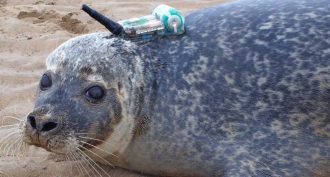 Animals
AnimalsWind farms: Restaurants for seals?
Scientists have tracked harbor seals visiting the turbines of ocean wind farms. The predators may be drawn by fish that make their homes in the artificial reefs created by the manmade structures.
-
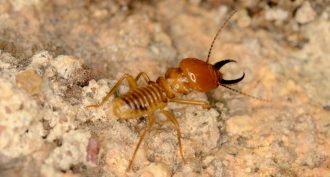 Animals
AnimalsHow termites ‘hear‘ about trouble
When danger comes too close, termites bang their heads against the walls of their homes. This action sends out a warning vibration that others ‘hear’ with their legs.
-
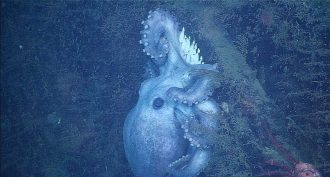 Animals
AnimalsOctopus sets egg-nurturing record
Animals will do extraordinary things to help their babies survive. Consider ‘Octomom:’ She sat on one clutch of eggs for nearly 4.5 years.
-
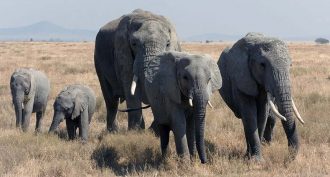 Animals
AnimalsElephants appear to be super sniffers
Elephants are not only massive, but also possess the most odor-detecting genes of any animal known, new research shows.
By Nsikan Akpan -
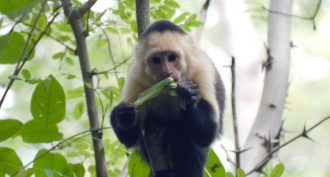 Animals
AnimalsBugs may have made us brainy
Finding and eating bugs when other food was scarce helped primates — including our ancestors — evolve bigger and better brains. At least that’s the conclusion of a new study in Costa Rica.
-
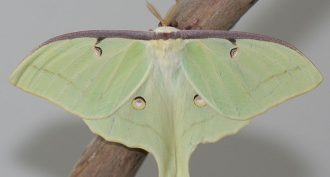 Animals
AnimalsKeep the lights on for National Moth Week
Helping scientists is as easy as leaving your porch light on. Photograph the moths you see and upload them to the Internet for science.
-
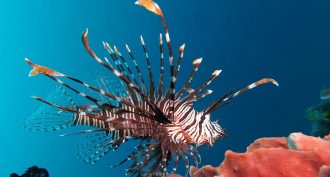 Animals
AnimalsTeen shows salty lionfish are getting fresh
Lauren Arrington kept spotting lionfish in rivers near her Florida home. Her science fair project probed how much fresh water these ocean fish could stand — and led to a published research paper.
-
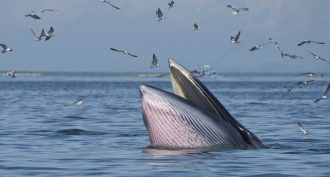 Animals
AnimalsCool Jobs: A whale of a time
Studying blue whales, spinner dolphins and other cetaceans demands clever ways to unveil the out-of-sight behaviors of these marine denizens.
By Eric Wagner -
 Animals
AnimalsExplainer: What is a whale?
Can a dolphin be a whale — or a whale be a dolphin? Yes, because the terms used to describe the biggest marine mammals are quite elastic and fuzzy.
By Janet Raloff -
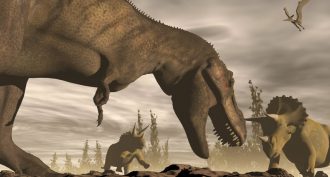 Fossils
FossilsHot-blooded dinos? Try lukewarm
New study finds these reptiles may have had an internal furnace that sort of resembled some sharks. It appeared to run neither hot nor cold.
-
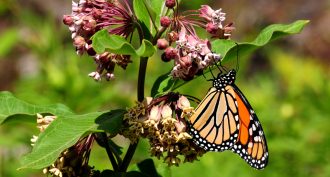 Animals
AnimalsSalted butterflies
The salt used on winter ice can alter the bodies of summer's butterflies. Males develop larger muscles and females get bigger brains.
-
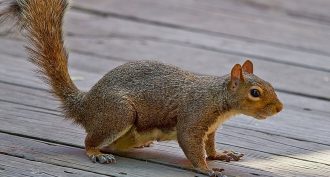 Animals
AnimalsStalking squirrels for science
A scientist noticed the squirrels in his family’s town, and began studying them. His results show why squirrels are such good city dwellers, and prove that science is right outside your door.